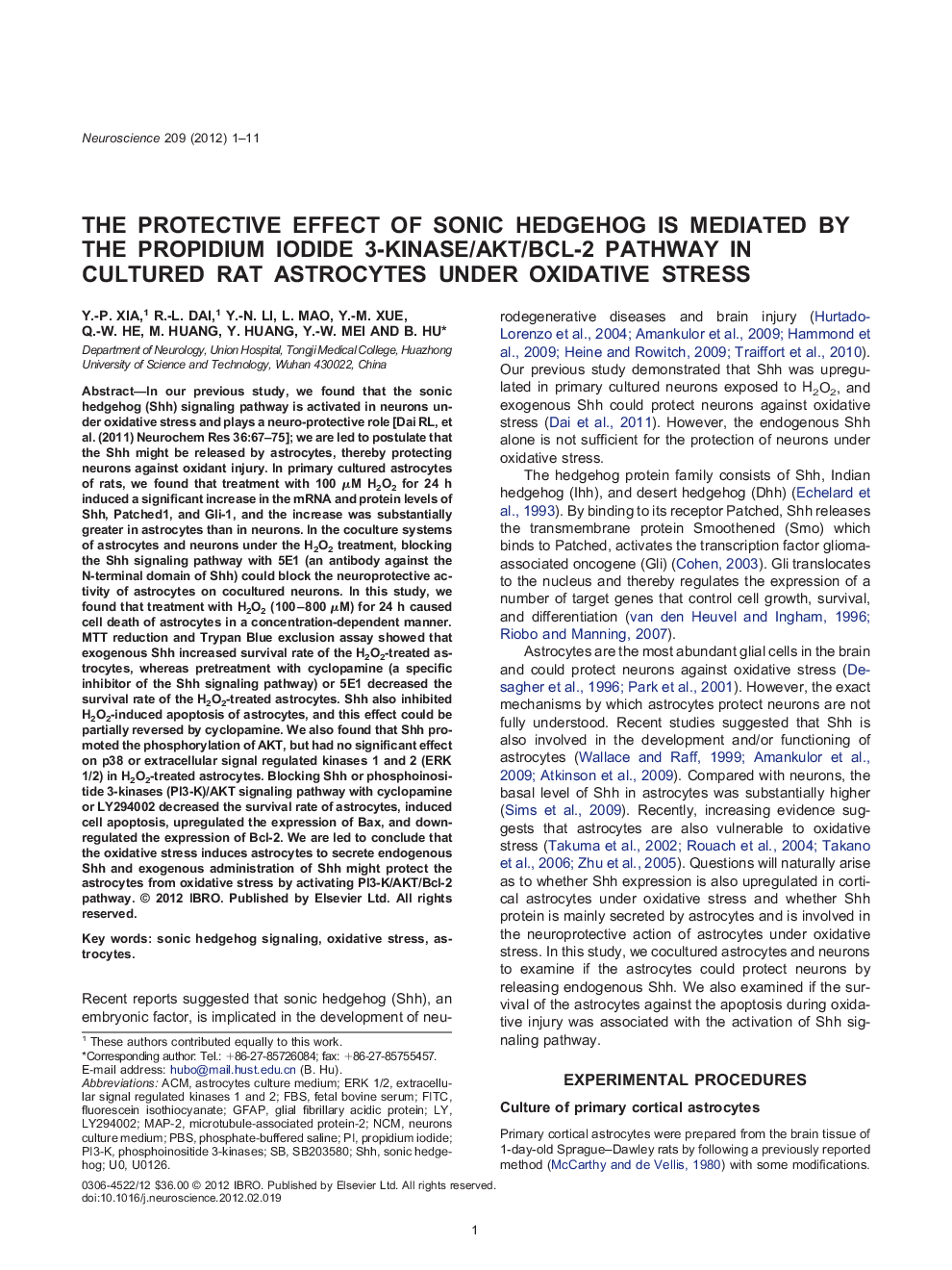| کد مقاله | کد نشریه | سال انتشار | مقاله انگلیسی | نسخه تمام متن |
|---|---|---|---|---|
| 4338513 | 1614867 | 2012 | 11 صفحه PDF | دانلود رایگان |

In our previous study, we found that the sonic hedgehog (Shh) signaling pathway is activated in neurons under oxidative stress and plays a neuro-protective role [Dai RL, et al. (2011) Neurochem Res 36:67–75]; we are led to postulate that the Shh might be released by astrocytes, thereby protecting neurons against oxidant injury. In primary cultured astrocytes of rats, we found that treatment with 100 μM H2O2 for 24 h induced a significant increase in the mRNA and protein levels of Shh, Patched1, and Gli-1, and the increase was substantially greater in astrocytes than in neurons. In the coculture systems of astrocytes and neurons under the H2O2 treatment, blocking the Shh signaling pathway with 5E1 (an antibody against the N-terminal domain of Shh) could block the neuroprotective activity of astrocytes on cocultured neurons. In this study, we found that treatment with H2O2 (100–800 μM) for 24 h caused cell death of astrocytes in a concentration-dependent manner. MTT reduction and Trypan Blue exclusion assay showed that exogenous Shh increased survival rate of the H2O2-treated astrocytes, whereas pretreatment with cyclopamine (a specific inhibitor of the Shh signaling pathway) or 5E1 decreased the survival rate of the H2O2-treated astrocytes. Shh also inhibited H2O2-induced apoptosis of astrocytes, and this effect could be partially reversed by cyclopamine. We also found that Shh promoted the phosphorylation of AKT, but had no significant effect on p38 or extracellular signal regulated kinases 1 and 2 (ERK 1/2) in H2O2-treated astrocytes. Blocking Shh or phosphoinositide 3-kinases (PI3-K)/AKT signaling pathway with cyclopamine or LY294002 decreased the survival rate of astrocytes, induced cell apoptosis, upregulated the expression of Bax, and downregulated the expression of Bcl-2. We are led to conclude that the oxidative stress induces astrocytes to secrete endogenous Shh and exogenous administration of Shh might protect the astrocytes from oxidative stress by activating PI3-K/AKT/Bcl-2 pathway.
▶Shh signaling pathway was activated in astrocytes submitted to H2O2. ▶The increased level of Shh induced by H2O2 was substantially greater in astrocytes than in neurons. ▶Astrocytes-derived Shh could protect neurons against H2O2. ▶Administration of exogenous Shh might protect the astrocytes against H2O2. ▶The protective effect of Shh might be regulated by the PI3-K/AKT/Bcl-2 pathway.
Journal: Neuroscience - Volume 209, 3 May 2012, Pages 1–11